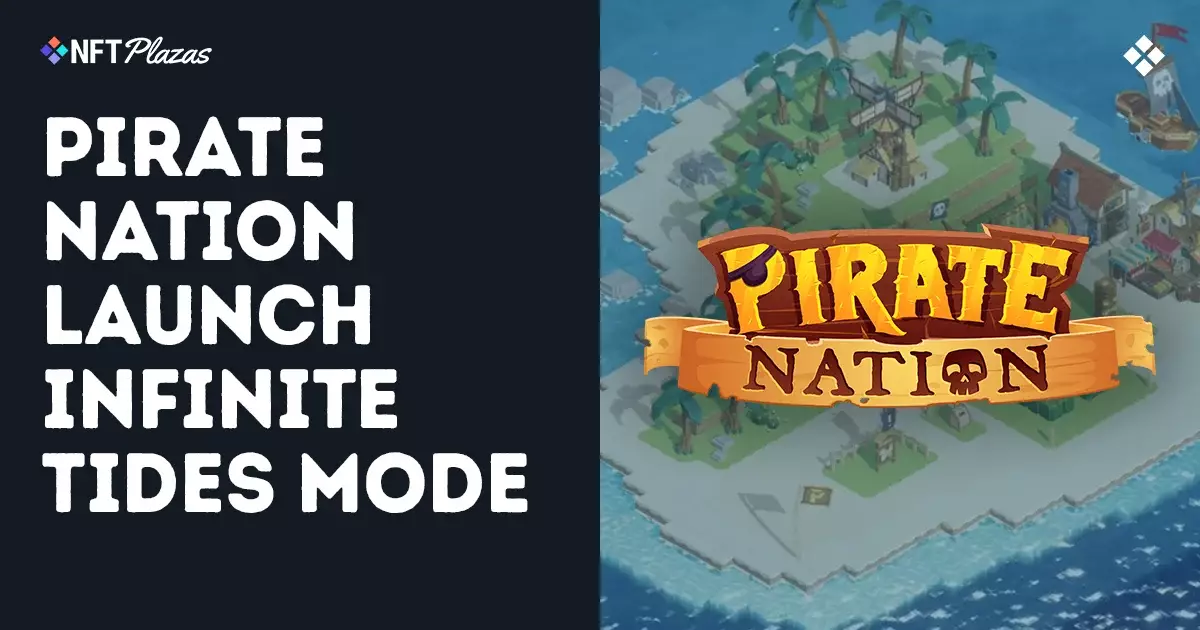The world of NFT gaming is rapidly evolving, with innovations that continually influence how players engage with their virtual environments. Among these advancements, Pirate Nation has unveiled its thrilling new mode, Infinite Tides, which has taken the gaming community by storm. This roguelite Player vs Environment (PvE) adventure is not merely a challenge; it is a testament to the potential of blockchain technology and the increasing sophistication of video games. As an advocate for a center-right, liberal perspective, I assert that while these games might be viewed through the lens of mere entertainment, the implications for intellectual property, community building, and economic opportunities present in this space signify substantial progress for the digital economy.
Roguelite Challenge: A Test of Strategy and Skill
Infinite Tides introduces a unique format that pushes players against 25 waves of progressively tougher adversaries, utilizing a turn-based strategy that necessitates foresight and cunning. Unlike many mainstream titles that prioritize graphical fidelity and frenetic gameplay, this mode emphasizes strategic decision-making that reflects the burgeoning importance of intellectual engagement in gaming. Players must use their post-wave rewards wisely and manage their single ship’s persistent health, which creates an environment where each decision counts. This level of complexity elevates the gaming experience from simplistic entertainment to a more intellectually stimulating endeavor, aligning well with my belief that active participation in challenging environments fosters personal growth.
The Significance of Limited-Edition Assets
One highlight of Infinite Tides is the introduction of limited-edition skins, specifically the coveted Hanzo the Samurai, awarded to players who complete all 25 waves. The concept of scarcity in a digital context not only enhances player engagement but reinforces the value of NFTs in gaming. Instead of treating digital assets as mere collectibles, this approach illustrates how gameplay mechanics and market economics can coalesce to create a vibrant ecosystem. It’s an astute marketing tactic, pushing players to invest not just time but possibly financial resources as well, which is fitting given the current landscape where crypto and NFT technologies are gaining momentum. Yet, while I appreciate the innovation, I also recognize a potential downside: the risk of excluding casual gamers who cannot or choose not to invest financially.
The Role of Community and Competition
The presence of leaderboards, which are anticipated for the Infinite Tides mode, marks an essential dynamic in community-building among players. Competition can ignite camaraderie or incite rivalry, depending on personal perspectives. In a gaming world where collaboration is often touted, the competitive spirit fosters motivation for players to improve, strategize, and engage more profoundly with the game. This interaction leads to a richer communal experience, embodying the values I stand for: collective betterment and advancement through shared challenges. However, it also poses risks when competitive structures morph into toxic environments, mirroring the complexities of modern social interactions on digital platforms.
A Marketplace Driven by Player Choices
The unique mechanics surrounding card selection and progression reveal an underlying shift in how players engage with games. Infinite Tides is structured around choices that significantly impact a player’s journey, embodying principles of agency and personal investment in the game’s outcome. This reflects an innovative leap away from traditional gameplay modalities, and it also dovetails with conversations around agency in economic systems. But are players truly free in their choices, or are they bound by the confines of a microtransaction model? This tension merits scrutiny, as it speaks to broader themes of economic freedom and responsibility within digital spaces.
While Infinite Tides represents a pinnacle for both Pirate Nation and the NFT gaming industry as a whole, it also begs a broader discussion about the implications of its mechanics and economic models. As exciting as the gameplay is, it is essential to critically assess the motivations behind such innovations and ensure they serve the player base holistically. As the NFT gaming landscape continues to mature, it becomes incumbent upon both developers and the community to navigate these evolving waters judiciously, ensuring that player empowerment and engagement remain at the forefront of this brave new digital frontier.

